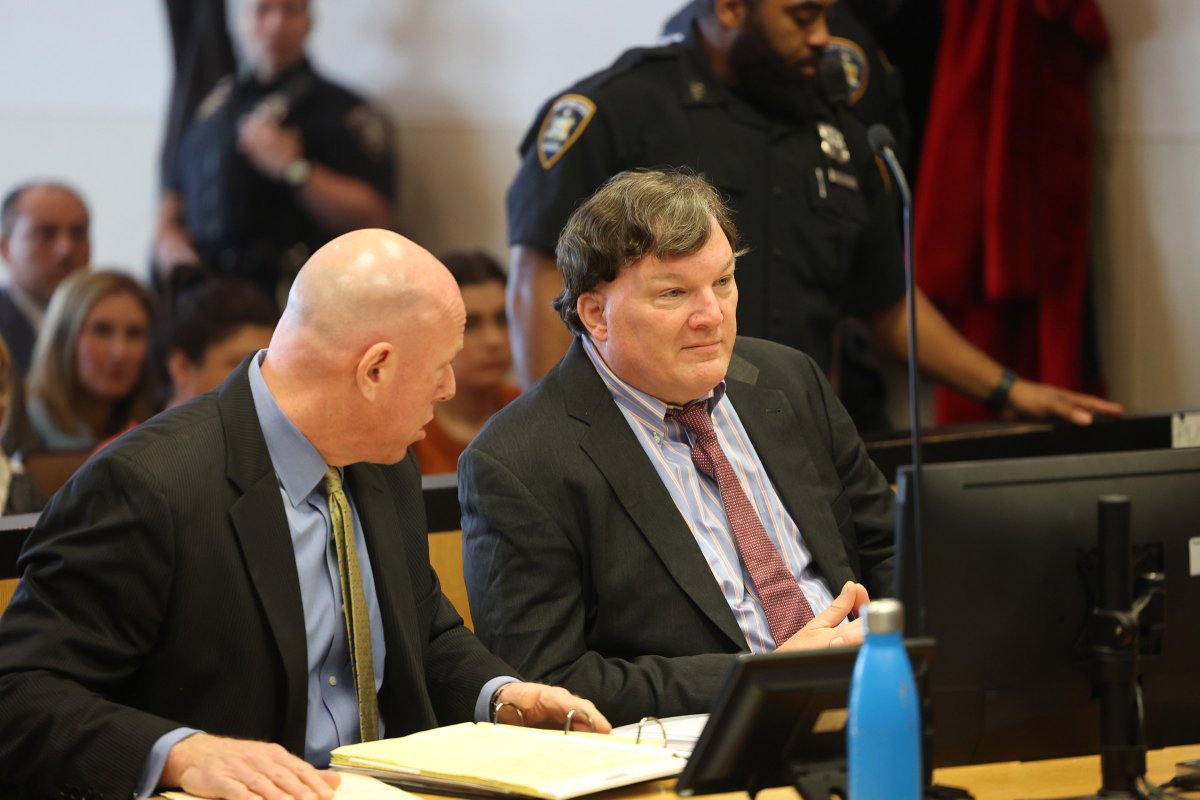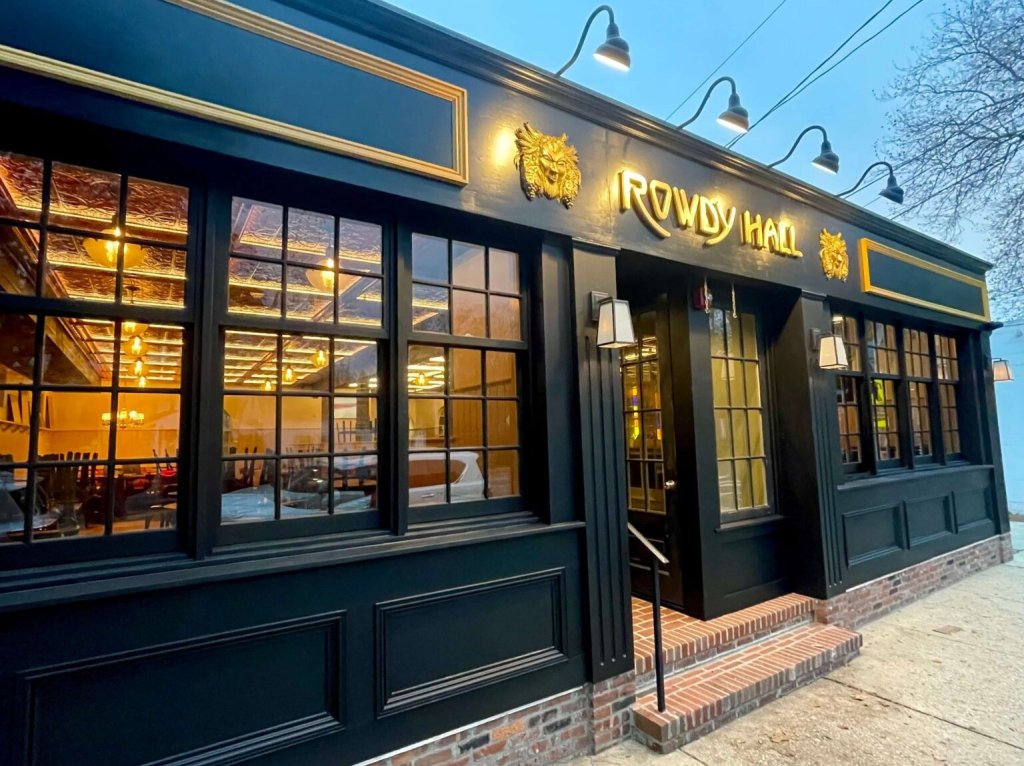Elections 2024: Schiavoni Replaces Theile, Incumbents Re-elected, Propositions Pass

Democrats won open seats on East End ballots despite a nationwide red wave of Republican voters who elected the GOP to take control of Congress and the White House on Election Day.
Democratic Southampton Town Councilman Tommy Schiavoni defeated Republican Shelter Island Town Attorney Stephen Kiely of Mattituck in New York State’s 1st Assembly District race to replace outgoing Assemblyman Fred Thiele (D-Sag Harbor), who is retiring after 30 years. Democrat Arnott Gooding beat two candidates to win a seat on the Shelter Island Town Board. And voters returned incumbents to office up and down the ballots — in addition to approving four propositions.
“Tommy John is a common sense moderate Democrat who will represent the East End with the same passion and experience he has done on the Southampton Town Board,” Suffolk County Democratic Chairman Richard Schaffer told Dan’s Papers. “He is the natural replacement for everyone’s favorite public servant Fred Thiele.”
The local results come as Republican former President Donald Trump beat Democratic Vice President Kamala Harris in the presidential election, the GOP won control of the U.S. Senate and Republicans appear to have maintained a slim majority in the U.S. House of Representatives — although one of Long Island’s four congressional seats flipped from red to blue.
Here is a look at the election results across the Twin Forks region.

CONGRESS
Freshman U.S. Rep. Nick LaLota (R-Rocky Point) won a second term in New York’s 1st Congressional District, defeating Democratic challenger John Avlon, Sag Harbor homeowner and former CNN broadcaster.
LaLota, whose district spans the entire East End and the North Shore of Suffolk County, won 55% of the vote over Avlon’s 44%, according to unofficial early returns tallied by the Suffolk County Board of Elections.
“I’m fired up to go back to Washington to take another oath to fight for you,” LaLota told his supporters at his victory party at Stereo Garden in Patchogue. “I also want to say thank you to people who didn’t vote for me. You’re not garbage … regardless of your affiliation, I will continue to serve every constituent on Long Island.”
Avlon, who had defeated Stony Brook University professor Nancy Goroff in a Democratic primary in June, conceded the race at the Suffolk County Democratic Committee’s election night watch party in Holtsville.
“What we’re facing in Suffolk County tonight isn’t the outcome we wanted,” Avlon said. “It’s a hard night in Suffolk County for us Democrats. It’s a hard night for many Democrats in the country, but the fight continues, and it’s really important for us to keep the energy up to understand that this is not a time for us to shirk back, but it’s a time for folks to step up continuously, because the good fight never ends.”
Both candidates faced questions about residency in the district, with voters questioning if Avlon truly lived in Sag Harbor full time as opposed to splitting his time between there and Manhattan, while it is a known fact that LaLota lives in Amityville, which falls in New York’s 2nd congressional district.
“He couldn’t vote for himself in this election,” Avlon told Dan’s Papers before the result was in. “Did he write himself in?”
On the issues, the candidates sparred over abortion, taxes, the border, and more, with LaLota claiming to hold moderate views and be bipartisan, while Avlon accused him of “presenting moderate in an election, but voting MAGA in Washington.”
LaLota had succeeded former East End Congressman Lee Zeldin, who Trump recently nominated to be the next administrator of the U.S. Environmental Protection Agency.
STATE SEATS
Three New York State legislative seats were also on East End ballots this cycle.
Schiavoni won 55% of the vote to beat Kiely, who got 44% in Thiele’s open Assembly seat, early returns showed.
On the North Fork, state Assemblywoman Jodi Giglio (R-Riverhead) trounced Democratic challenger Tricia Chiaramonte by a margin of 65% to 35%, according to the same unofficial returns.
And the East End’s lone state Senate race saw Sen. Anthony Palumbo (R-New Suffolk) beat former Suffolk County Legislator Sarah Anker (D-Mount Sinai), who was term-limited from seeking re-election last year, by a margin of 54% to 46%, early tallies showed.
“It’s about doing what’s best for our constituency on Long Island,” Palumbo said in his victory speech.
Democrats appear to have increased their majority by one seat in the state Assembly but lost the supermajority by one in the state Senate.
TOWN RACES
There were also half a dozen town-level races on ballots this year, including a pair of seats on two different town councils.
Gooding won his seat on the Shelter Island Town Council with 42% of the vote to beat two candidates: Republican Thomas Cronin, who got 36%, and Lisa Shaw of the Island Action Party, who got 21%, returns show.
East Hampton Town Councilman Ian Calder-Piedmonte was returned to office with 69% of the vote over Hyman Mariampolski, who got 30%, returns show. Calder-Piedmonte had been appointed in January to fill a vacancy created when East Hampton Town Supervisor Kathee Burke-Gonzalez vacated her seat on the town board and won the town’s top job.
There were also four town justice seats on ballots, but half were uncontested.
Riverhead Town Justice Sean Walter was re-elected on the Republican line with 58% of the vote despite a challenge from longtime New York State Supreme Court Justice William Condon, who got 41% on the Democratic line, returns show.
Democratic Shelter Island Town Justice Stanley Birnbaum won his second term with 56% of the vote over Republican challenger Michael Carey, longtime lawyer and Shelter Island resident who got 43%, returns show.
Southampton Town Justices Adam Grossman and Karen Sartain were both re-elected in unopposed races.
PROPOSITIONS
Four propositions on local ballots — a statewide amendment change, a Suffolk County sales tax hike to fund new sewers and a pair of local referenda in Southampton and East Hampton towns — all passed.
In the East Hampton proposition, voters approved a town plan to use part of a nature preserve to reconfigure a problematic intersection. In the Southampton proposition, voters approved a town request for funds dedicated to cleaning up Lake Agawam in the Village of Southampton. Both propositions had bipartisan support.
Suffolk County voters also overwhelmingly passed Proposition 2 to establish a $3-to-$4-billion Suffolk County Water Quality Restoration Fund to expand wastewater treatment systems and replace antiquated septic systems with high-tech nitrogen removal systems.
The measure passed with 71% of the vote in favor — more than double the 28% who voted against it — according to unofficial early returns tallied by the Suffolk County Board of Elections. Environmentalists cheered the news.
“This victory is the culmination of decades of work and shows the power of dedication and collaboration,” The Nature Conservancy’s Long Island Policy Advisor Kevin McDonald said. “The universal need for clean water transcends all politics.”
The New York State Legislature and the Suffolk County Legislature both have approved legislation that would create the fund, but voters had to approve it to become law. The 1/8th of a percent sales tax increase would advance the implementation of the previously approved Suffolk County Subwatersheds Wastewater Plan that maps out a comprehensive wastewater treatment infrastructure roadmap over the next half-century. It would also create a county-wide wastewater management district.
“In an election filled with controversy, clean water has united Suffolk County,” Citizens Campaign for the Environment Executive Director Adrienne Esposito said. “This is the culmination of over a decade of research and effort to craft a plan to restore our drinking and coastal waters. Today we made history and tomorrow will get to work to implement the clean water restoration plan.”
Voters across New York State also approved Proposition 1, the New York Equal Protection of Law Amendment to the state constitution. According to its supporters, the amendment would greatly expand on protections codified in the state’s 1938 Equal Rights Amendment (ERA), which prohibits discrimination based on race, color, creed or religion — but not sex or gender. The new amendment was much broader, noting that it includes protections against discrimination on the basis of sex, sexual orientation, gender identity or expression, ethnicity, national origin, age, disability, pregnancy, reproductive healthcare and autonomy.



